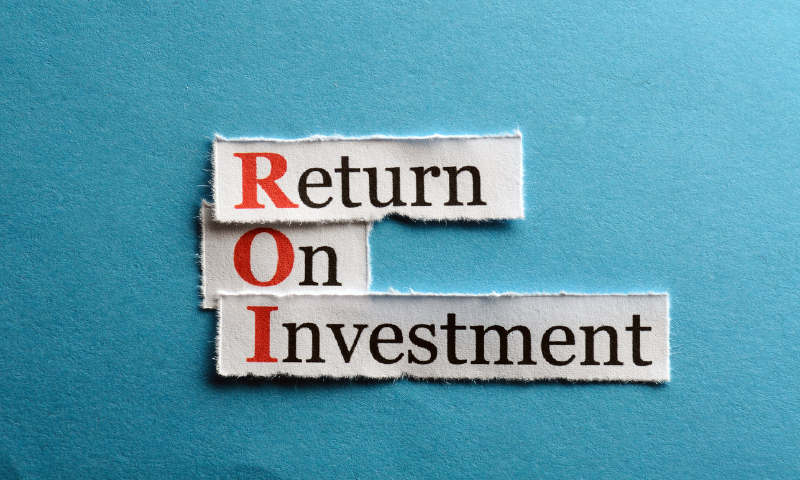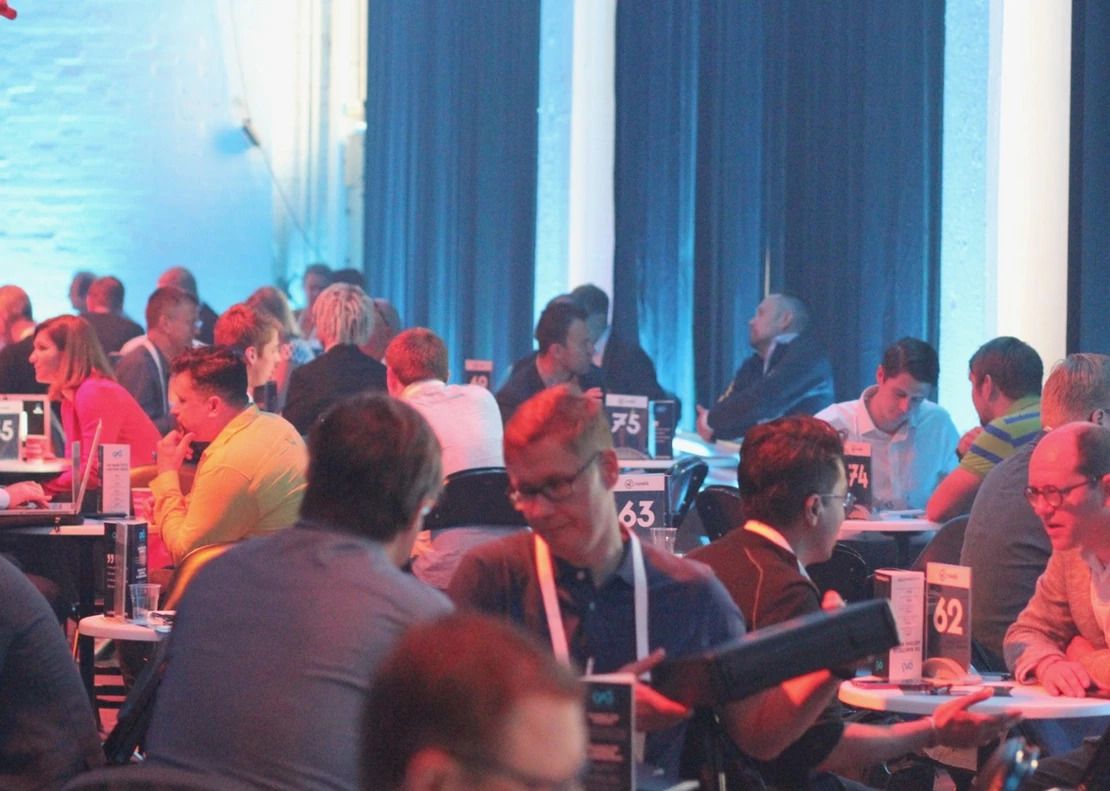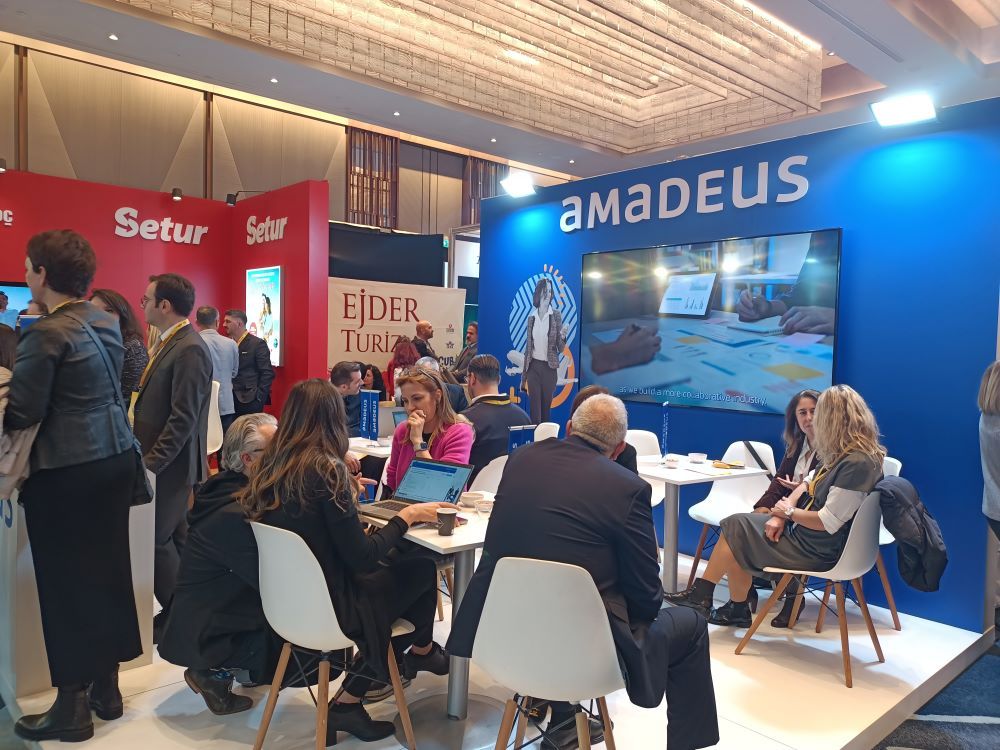
Despite the importance of revenue growth for event success, many organizers struggle to achieve significant revenue growth. Here's where this blog post from Deal Room comes in. It aims to give a thorough overview of the most effective approaches and strategies for increasing event revenue and monetizing it, along with guidance and best practices for maximizing various revenue streams.
Let's raise the bar and make your events a financial success!
Event revenue growth and monetization refer to the strategies and tactics used by event planners and organizers to increase revenue and profits from their events. It includes a variety of methods, such as ticket sales, sponsorships, advertising, merchandise sales, and other related services. This procedure is crucial for an event's success and sustainability because it aids in both cost and revenue coverage.
The primary goal of event revenue growth and monetization is to boost the attendee experience while also raising event revenue. This is essential to the event's overall success and viability. Event organizers can effectively cover costs and increase profits by utilizing various strategies and tactics. For example, event planners can increase ticket sales by increasing the price of tickets, creating VIP packages, or offering early bird discounts.
Enhanced event revenue plays a crucial role in the success of an event by providing the necessary funds to cover expenses and potentially generate a profit. By carefully managing costs and maximizing revenue streams, event organizers can ensure that their event is financially successful and sustainable in the long term. The benefits of enhanced event revenue are considerable. Some of these benefits include:
Covering expenses: Income from an event can pay for costs like venue rental, supplies, personnel, and marketing.
Profit generation: If revenue exceeds expenses, the event can generate a profit to invest in future events, improve current events, or support the organization's mission.
Increased popularity: Events that generate significant revenue can often attract more attendees, sponsors, and media coverage. Generating revenue can help the event's popularity and lead to even more earnings in the future.
Increased flexibility: Revenue can give event planners more freedom in organizing and carrying out the event. For example, if the event generates more revenue than expected, the organizers can invest in additional resources such as entertainment, food, drinks, or marketing to enhance the attendee experience.
Branding and marketing: Revenue from sponsorships and advertising increases the visibility of the event and the organization behind it, helping to build the brand and attract new customers and supporters.
Sustainable in the long term: By maximizing revenue streams and managing costs effectively, event organizers can ensure that their event is financially sustainable, leading to continued success.
Event monetization refers to how event organizers can generate revenue from their events. It's necessary to balance the monetization strategies with the overall experience, as it could be detrimental to the event's reputation and attendance at future events if the focus is solely on monetization and not the overall attendee experience. Event monetization techniques include:
This is the most basic form of event monetization and involves charging attendees a fee to attend the event.
Let's briefly explore different ticket sales strategies that can help you boost revenue:
Early bird pricing offers lower ticket prices for customers who purchase tickets before a specific date determined by the organizer.
Tiered pricing sets different ticket prices for different sections or levels of the event venue.
Group discounts offer discounts for groups of people who purchase tickets together.
VIP packages offer exclusive experiences or perks for customers who purchase them.
Sponsorship packages refer to partnering with businesses to offer sponsored ticket packages.
Dynamic pricing uses algorithms to adjust ticket prices in real time based on demand and other factors.
Pay-what-you-want allows customers to pay whatever they want for a ticket, which can be successful if you are looking for a charitable event or have a loyal fan base.
Free ticket with purchase refers to giving away a free ticket with another purchased ticket. By offering a free ticket with purchase, we actively drive attendance and promote our events.
The subscription model offers a subscription service that allows customers to attend multiple events at a discounted rate.
Waitlist/lottery refers to implementing a waitlist or lottery system for ticket purchasing that can effectively generate a sense of scarcity around the event, thereby increasing demand for tickets.

Companies can pay to have their brand associated with an event and may receive benefits such as exclusive branding or VIP experiences.
Here are some strategies that can help you secure sponsors and make the most of those partnerships:
Identify potential sponsors: Research potential sponsors that align with your event's audience and theme.
Create a sponsorship package: Create a sponsorship package with different levels, such as gold, silver, and bronze, with unique perks and exposure opportunities for each.
Utilize social media and digital marketing: Use social media and digital marketing to promote your event and attract sponsors.
Offer unique perks: Make sponsors feel special by offering them impressive benefits like VIP access or speaking opportunities.
Build relationships: Establish strong relationships with sponsors and ensure that you meet their needs and expectations.
Use data to drive decision-making: Utilize data to make more captivating sponsorship packages for prospective sponsors, understand the ROI of your sponsorships, and guide your decisions.
Create a memorable experience: Create an unforgettable experience for your sponsors, so they will want to come back year after year.
Create ancillary revenue streams: Create additional revenue streams such as merchandise sales, ticket sales, and food and beverage sales.
Partner with other brands: Work with various brands to design an eye-catching event that will entice more sponsors.
Be creative: When it comes to sponsorships, be creative, think outside the box, and try to come up with unique ideas that will set your event apart from others.
Event organizers can sell advertising areas, such as on event signage or in event programs, to generate revenue.
Are you ready to discover the top advertising strategies that will help you monetize your event and drive growth?
Social media advertising: Utilizing platforms like Facebook, Instagram, and Twitter to promote your event to a targeted audience
Influencer marketing: Partnering with influencers in your industry to promote your event to their followers
Email marketing: Sending promotional emails to your existing customer base and subscribers
Search engine advertising: Running paid ads on search engines like Google and Bing to drive traffic to your event website
Out-of-home advertising: Utilizing billboards, bus shelters, and other out-of-home advertising to promote your event
Public relations: Utilizing media coverage and press releases to generate buzz about your event
Sponsorships and partnerships: Partnering with companies and organizations to promote your event and generate revenue
Referral marketing: Encouraging attendees to share the event with their friends and family through referral marketing programs
It's crucial to remember that not every tactic will work for every event, so test a few different ones to determine which one engages your audience the most.

Companies can pay to have a booth or exhibit at an event, which can be a great way to showcase their products or services to a targeted audience.
Exhibitors at events can use a variety of fee strategies to generate revenue and monetize their presence. Some strategies include:
Tiered pricing: This entails providing various exhibitor package tiers at different price points, each providing a unique set of advantages and perks.
Sponsorship opportunities: Exhibitors can monetize their presence by selling sponsorship opportunities to other companies.
Upselling: Exhibitors can upsell their services or products to attendees at the event.
Add-on sales: Exhibitors can offer additional services or products to attendees for an extra fee.
Lead generation: Exhibitors can use the event as an opportunity to generate leads for their businesses.
Revenue share: Exhibitors can share in the revenue generated by the event.
Marketing and advertising: Exhibitors can invest in marketing and advertising to promote their presence at the event.
Bundle pricing: Exhibitors can bundle their services or products with other companies' services or products to create a more appealing package for attendees.
Event organizers can sell merchandise, such as t-shirts or other souvenirs.
Merchandise sales can be a significant source of revenue and monetization for events. Don't miss out, and continue reading to discover how to take your merchandise sales to the next level:
Pre-event sales: Encourage attendees to purchase merchandise before the event, such as through an online store or pre-order system.
Limited-edition items: Create limited-edition merchandise items to create a sense of urgency and exclusivity among attendees.
On-site sales: Set up a merchandise booth or shop at the event for attendees to purchase items on-site.
Bundle deals: Offer bundle deals on merchandise, such as discounted prices for purchasing multiple items.
Customization: Offer customization options for merchandise, such as personalization or embroidery.
Cross-promotion: Partner with other companies or vendors to cross-promote merchandise.
Collaboration: Create exclusive merchandise items in partnership with well-known musicians, artists, or influencers to promote them on social media.
Pop-up shops: Pop-up shops can be set up during the event to increase product visibility.
Mobile sales: Utilize mobile sales technology to make it easy for attendees to purchase merchandise on their smartphones.
Post-event sales: Maintain after-event merchandise sales and provide online sales so that people who couldn't attend the event can still buy merchandise.
Upselling can include aspects like VIP experiences, meet and greets, or backstage tours. Here you'll find some creative and effective upselling strategies that you can try:
Premium Ticket Packages: Offer exclusive benefits to customers who upgrade to a premium ticket package, such as VIP seating, meet-and-greet opportunities, or a specific lounge area.
On-Site Upsells: Offer additional products or services during the event, such as food and beverage, parking, or merchandise.
Cross-Selling: Offer complementary products or services related to the event, such as hotel rooms, transportation, or travel packages.
Add-Ons: Offer add-ons such as after-parties, photo ops, or pre-event meet-and-greets to increase the overall value of the event.
Bundle Deals: Bundle multiple events or products together to create a more compelling offer.
Subscription Model: Offer customers the ability to purchase a subscription to multiple events, allowing them to attend an unlimited number of events for a set price.
After the event, organizers can continue to monetize the event by selling recordings of the event, photographs, or other relevant content.
Dive in and discover how to maximize your event revenue with our post-event sales strategies:
Follow up with attendees: Send personalized thank-you notes; collect feedback; offer post-event surveys; and gather leads for future events.
Monetize event content: Create and sell event merchandise; sell recordings or slides of the event; and offer event attendees the opportunity to upgrade to a VIP package.
Upsell and cross-sell: Offer special deals or discounts on future events or products to attendees who have already purchased from you.
Utilize social media: Share highlights, photos, and feedback from the event to reach a wider audience and attract new attendees.
Leverage data: Analyze attendee behavior and preferences to inform future event planning and improve the attendee experience.How can Deal Room Platform Unlock Event Monetization Potential?
Welcome to the world of event revenue growth and monetization with Deal Room!
Our platform is built with a variety of features to give sponsors, partners, and exhibitors the best possible brand visibility and commercial value. From matchmaking services that connect attendees with exhibitors to pre-scheduling 1-1 meetings and lead generation opportunities, our platform offers a variety of ways to monetize your event. Additionally, our access control system and virtual and in-person event branding options provide additional revenue streams for event organizers.
With the Deal Room platform, you'll have everything you need to increase the digital visibility of your event partners and sponsors across all communication channels. Don't miss out on this opportunity—read more about our features:
Providing sponsors, partners, and exhibitors with maximum brand visibility through various options such as registration, event lobby, networking area, meetings, expo booths, and more.
Monetizing sponsorship areas to ensure sponsors get the most out of the event.
Attendee-exhibitor matchmaking through platform, chat, or meetings at booths.
Pre-scheduling 1-1 meetings with attendees on behalf of sponsors or event organizers.
Lead generation through meetings and QR code scanning.
Access control for different ticket types and specific areas, meetings, and sessions.
Engagement through announcements, polls, quizzes, and games.
Branded event app opportunity for monetization through name sponsorship.
Increasing the digital visibility of event partners and sponsors across all communication channels.
In conclusion, Deal Room is the premier alternative for event revenue growth and monetization. Our platform offers a comprehensive suite of features that are unmatched by competitors. With the ability to brand virtual and in-person events and create a branded event app, Deal Room also offers event organizers a variety of revenue streams. But most importantly, we ensure that the sponsors are visible across all communication channels on the platform, which is the key to monetizing the event.
With Deal Room, you can be confident that your event will be a success and drive revenue growth. Don't settle for anything less! Choose Deal Room for your next event.
Finding event sponsors can be a bit of a challenge, but it's a great way to support your event and make it even better.
Strategic sponsorship can play a critical role in increasing event revenue by providing a source of funding and bringing in new audience members. Sponsors can provide financial support, in-kind donations, or both. For example, a sponsor may provide monetary support in exchange for the right to promote their products or services to event attendees. Utilizing this strategy can help offset event costs and allow organizers to focus on creating high-quality experiences for attendees.
Finding and securing sponsors requires a well-executed plan that starts with identifying potential sponsors who align with the event’s goals and target audience. Event organizers can also reach out to past sponsors or consider partnering with local businesses.
Once potential sponsors are identified, event organizers can reach out to them with a well-crafted sponsorship proposal that highlights the benefits of sponsoring the event. The proposal should highlight the value that the sponsor will receive, such as increased brand exposure or the opportunity to engage with event attendees. Event organizers should also provide sponsors with clear, measurable objectives and be prepared to negotiate the terms of the sponsorship agreement. Maintaining open lines of communication with sponsors and delivering on the agreed-upon objectives will help ensure a successful sponsorship relationship.
Budget management is an essential component of event planning, which can be difficult. With many variables to consider, staying within budget while delivering a memorable and successful event can be challenging. Some common challenges include unexpected expenses, changes in market prices, and unanticipated requirements.
It's critical to have a sound budgeting strategy in place to overcome these obstacles. These strategies might include creating a comprehensive master budget, setting aside a contingency budget, and staying flexible with your finances. By taking a proactive approach to budget management, you can ensure that you're able to deliver an amazing event while still keeping your costs under control.
There are several types of budgets that event planners use, including:
The master budget is a comprehensive document that outlines all the costs associated with the event, including the venue, food, beverages, decorations, audio-visual equipment, etc.
The fixed budget is a spending limit that each item must stay within.
The flexible budget enables some modifications based on changes to the event or unforeseen circumstances.
The projected budget is a budget that estimates the costs based on previous events or market trends.
The actual budget is a budget that reflects the actual expenses incurred during the event.
A contingency budget is a budget that sets aside funds for unexpected or unanticipated costs.
Get ready to turbocharge your event revenue growth with a deep understanding of your target audience!
By zeroing in on the preferences, needs, and behaviors of your ideal attendees, you'll be able to craft an unforgettable experience that will have them come to your event. Not only will this boost attendance, but it will also lead to higher ticket sales, lucrative sponsorship opportunities, and a whole host of other monetization options. But that's not all. With a clear understanding of your target audience, you'll be able to create an event that exceeds their expectations and leaves them buzzing with excitement. This positive word-of-mouth will keep them coming back for more and bring even more attendees along for the ride. So don't wait any longer and read the Deal Room blog post on "The Most Effective Strategies to Improve Event Audience Engagement" to learn how to connect with your target audience and create a truly unforgettable event experience.
Measuring the success of your event monetization strategies is crucial to understanding what is working and what can be improved. To start, you should track your ticket sales and sponsorships to see if they meet your expected revenue targets. Additionally, you can survey attendees to gauge their satisfaction with VIP experiences and any other monetization techniques you've implemented. You can also track the amount of event-branded merchandise sold and compare it to your costs.
Another crucial factor to consider is the ROI of your monetization efforts. To calculate ROI, divide your total revenue by the cost of your event, including all expenses related to monetization techniques. ROI calculations will give you a clear picture of how much profit you are making from each dollar invested. Furthermore, you can analyze data from your virtual events, such as webinars, by tracking the number of attendees and their level of engagement to understand which digital monetization techniques are most effective. Overall, tracking and analyzing your event monetization success will help you make informed decisions for future events and maximize your profits.
The future of event monetization is expected to be heavily influenced by technology and digitalization. It includes the use of virtual and hybrid events, as well as the integration of digital payment systems and e-commerce platforms. Virtual and hybrid events are on the rise. Virtual events offer new ways to make money through digital sponsorships, advertisements, and ticket sales. Hybrid events combine virtual and in-person events and provide a more diverse range of revenue streams.
Another trend is a shift toward more sustainable and socially responsible practices. Utilizing eco-friendly supplies and production techniques, as well as incorporating charitable and neighborhood-focused initiatives into event planning and execution, are a few examples of these practices. According to a survey by the events company Maritz Global Events, 60% of event planners consider sustainability their top priority, and 81% believe socially responsible events are more likely to be successful.
These statistics suggest that the future of event monetization will be shaped by technology, digitalization, sustainability, and social responsibility.
When it comes to getting the most out of an event, event revenue growth and monetization are key players. To truly maximize the potential of your event, it's necessary to think outside the box and try new things. The future of event monetization is all about blending the traditional with the cutting-edge.
Deal Room has got your back! Our platform is packed with advanced technology features that will give your sponsors, partners, and exhibitors the ultimate brand exposure and financial benefits. Deal Room is all about maximizing your event's digital visibility and ensuring you get maximum value from the event.
February 3, 2023

About me:
After seven years of translation experience in the management-related field and a passion for digital marketing, I was given the opportunity to work with the Cloud Markethink Agency and CloudTalk Global, the largest cloud computing event in Eurasia, as a team member to manage business events.
Additionally, working with Deal Room Events has provided me with a wonderful opportunity to reflect on and expand my experience as a content event marketing professional.
Our friendly and experienced team is ready to help.
